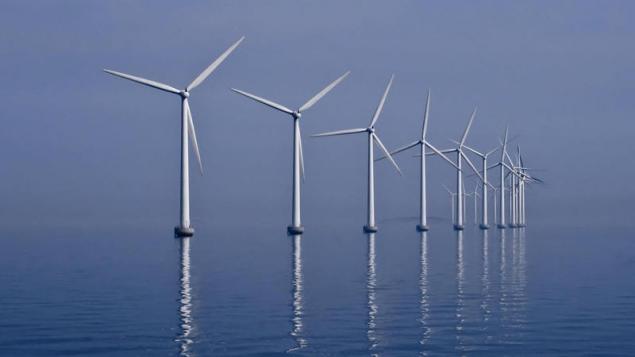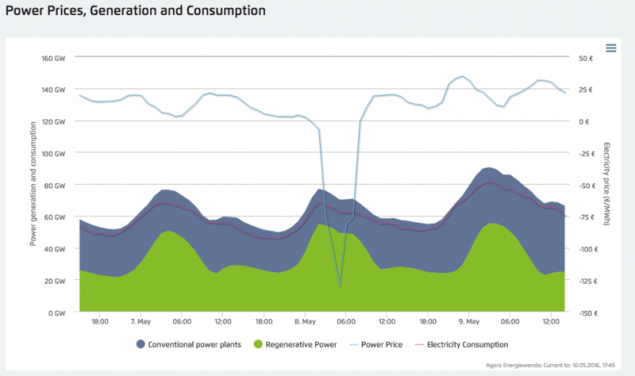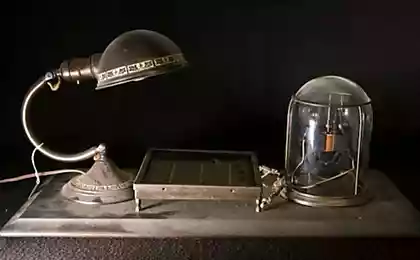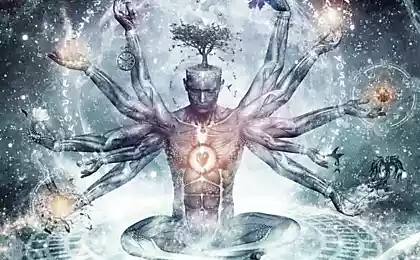938
Energy Consumers in Germany this Sunday received money for the used electricity
8 May, Sunday, Germany broke a new record in energy generation from renewable sources. Thanks to the sunny and windy weather at the same time the total energy production of solar, wind, hydro and bioenergostantsiyami was about 55 GW. In total in the country to this day, 63 GW of energy consumed. Thus, the share of renewable sources accounted for approximately 87%. For a few hours, rates went negative, which means that payments to consumers.

Recently, this situation is not something unique. Across Europe, similar to energy spikes occur more often. If prices went into minus only a few times in the past year it has happened dozens of times between 2010 and 2014. The problem is that the energy market prices in Europe are generated by the auction type. Producers ask the price, and buyers, it is logical to offer my own. And if too much energy, wholesale energy suppliers are beginning to dump, with prices sometimes go in the negative, as it happens now.
The producers of "green" energy are in the black even in sub-zero prices - here should be considered subsidies for the production of clean energy. The problem is that, often, surplus energy to put nowhere - "export" lines may be too "narrow" and send energy anywhere it is necessary. Therefore, energy producers are happy to get rid of excess even with the additional cost.

Interestingly, last year the share of renewable energy in Germany amounted to about 33%. This year, with the introduction of new wind power plants, the share of "alternative service" has increased in the energy market. By 2050, Germany plans to increase the share of energy from renewable sources up to 100%. And the same Danish vetroenergostantsii supply in some cases have more energy than it consumes the entire country. Therefore, the surplus is exported to the same Germany, Norway and Sweden. Costa Rica also receives 99% of energy from renewable sources.
What happened on Sunday - is not only an occasion for joy. There are negative aspects. For example, a modern energy infrastructure in many countries is too inert to adequately respond to the races and the fall in energy generation. And if gas power plant can be quickly "put out" that with nuclear power plants and coal-fired power plants failed to do so.
This problem is more serious than it seems, because the fast energy system of the country will not change. Perhaps in the future will develop accumulating "substation" that will be able to smooth out those moments, but as long as this area is not very developed.

Recently, this situation is not something unique. Across Europe, similar to energy spikes occur more often. If prices went into minus only a few times in the past year it has happened dozens of times between 2010 and 2014. The problem is that the energy market prices in Europe are generated by the auction type. Producers ask the price, and buyers, it is logical to offer my own. And if too much energy, wholesale energy suppliers are beginning to dump, with prices sometimes go in the negative, as it happens now.
The producers of "green" energy are in the black even in sub-zero prices - here should be considered subsidies for the production of clean energy. The problem is that, often, surplus energy to put nowhere - "export" lines may be too "narrow" and send energy anywhere it is necessary. Therefore, energy producers are happy to get rid of excess even with the additional cost.

Interestingly, last year the share of renewable energy in Germany amounted to about 33%. This year, with the introduction of new wind power plants, the share of "alternative service" has increased in the energy market. By 2050, Germany plans to increase the share of energy from renewable sources up to 100%. And the same Danish vetroenergostantsii supply in some cases have more energy than it consumes the entire country. Therefore, the surplus is exported to the same Germany, Norway and Sweden. Costa Rica also receives 99% of energy from renewable sources.
What happened on Sunday - is not only an occasion for joy. There are negative aspects. For example, a modern energy infrastructure in many countries is too inert to adequately respond to the races and the fall in energy generation. And if gas power plant can be quickly "put out" that with nuclear power plants and coal-fired power plants failed to do so.
This problem is more serious than it seems, because the fast energy system of the country will not change. Perhaps in the future will develop accumulating "substation" that will be able to smooth out those moments, but as long as this area is not very developed.
What happens if you put a solar panel on the balcony
12.05. If a Christian does not go to church, then the church will come to a Christian























